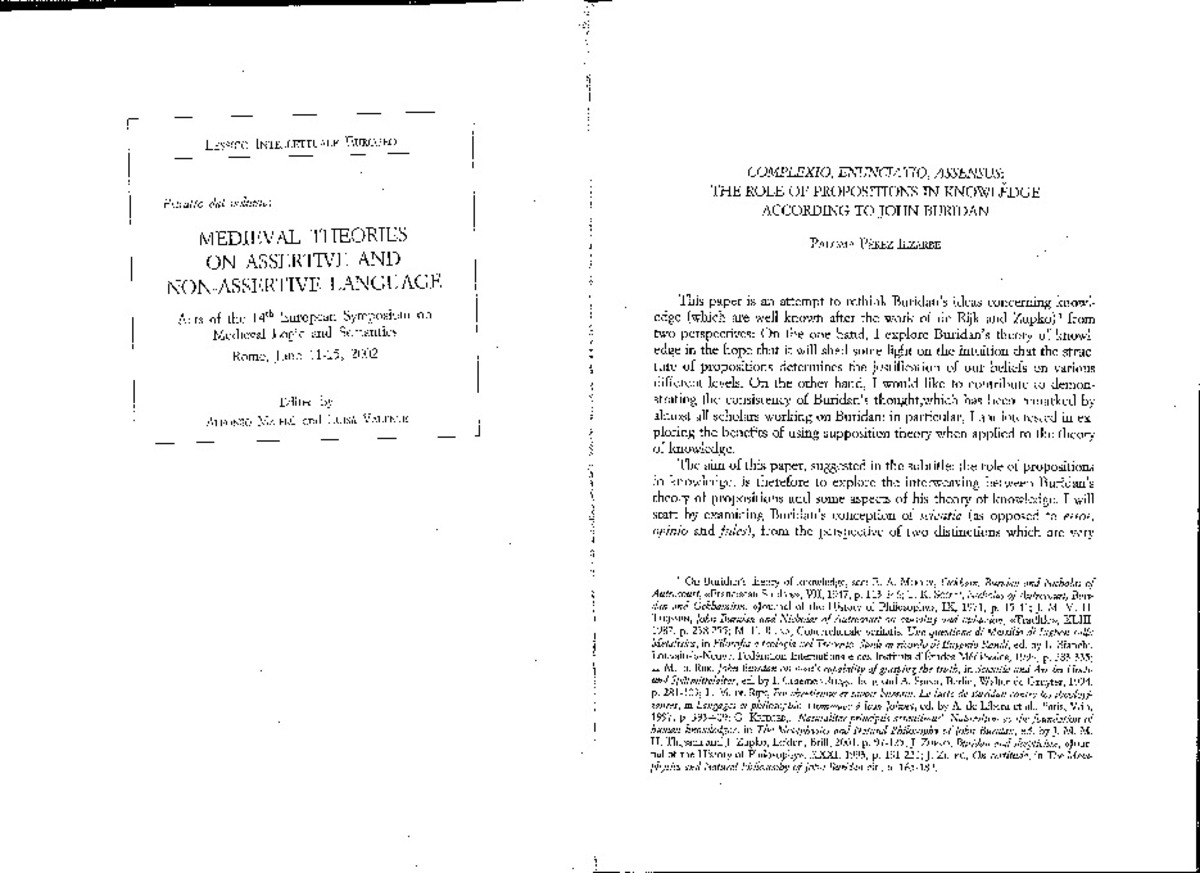Complexio, enunciatio, assensus: The role of propositions in knowledge according to John Buridan
Palabras clave :
Materias Investigacion::Arte y Humanidades
Fecha de publicación :
2004
Editorial :
Leo S. Olschki
Cita:
Pérez Ilzarbe, P. (2004). “Complexio, enunciatio, assensus: The role of propositions in knowledge according to John Buridan”. En: A. Maierù and L. Valente, eds. Medieval Theories on Assertive and Non-Assertive Language (pp. 401-413). Firenze: Leo S. Olschki
Aparece en las colecciones:
Estadísticas e impacto
0 citas en

0 citas en

Los ítems de Dadun están protegidos por copyright, con todos los derechos reservados, a menos que se indique lo contrario.







